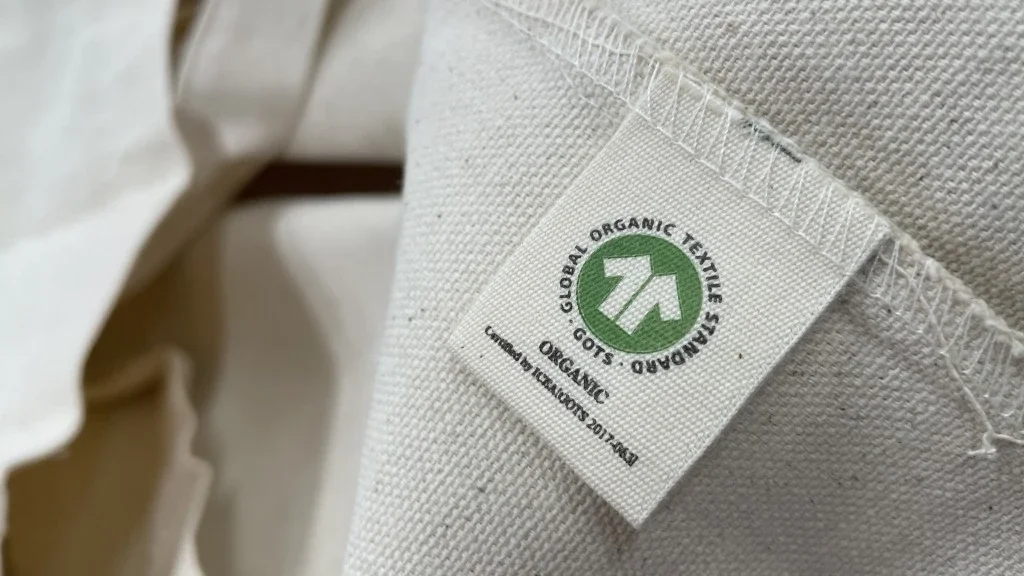It is really hard to be a consumer! Especially if you want to prioritize organic clothes for your children and thus avoid harmful chemicals.
Because organic clothes are not necessarily chemical-free.
This is one of the primary reasons why I decided to become a true eco-geek. Because I don't think it was cool to feel cheated and therefore needed knowledge to navigate around the world of “eco” certifications.
Because the demand for ecology is increasing. And luckily for that. Unfortunately, not everyone knows that when talking about clothes, organic does not necessarily mean chemical-free.
That is why there are various certifications that take this into account.
You get some insight into the most important pitfalls and certifications here.
Most people will naturally think that a t-shirt in organic cotton from the supermarket is a good and safe choice. However, it is not necessarily so. Because the label actually only says that the cotton is grown organically. It says nothing about how the t-shirt has been dyed and what a possible prints are made of. That is a completely different matter. Because the dyeing process itself is one of the most chemical-filled aspects of clothing production. For exactly this reason, it is really important to go for the right certifications if you want to be sure that your clothes are both organic and chemical-free.
In addition to clothes in organic cotton, there are clothes certified with Oeko-tex. This certification is fine and certainly a better alternative than clothes without certification, but it has nothing to do with ecology. Oeko-tex is a certification that ensures that the clothing does not contain illegal substances and that the clothing stays within set limit values for how much different substances may be in the clothing. So no doubt this certification is better than nothing, but it is neither organic nor a guarantee that there are no residual chemicals in the clothes.
If you want to be 100% sure that you are buying clothes/textiles that are both organic and chemical-free, then you must go for the GOTS label or the IVN-BEST label.
GOTS makes great demands on the producer, right from the first organic seed and harvest, to good and environmentally sound processing of the product and to the final certification of the textile. GOTS requires that at least 90% of the product is made of natural fibres. GOTS also requires that the manufacturer has a high level of social responsibility throughout the production process.
IVN-BEST is the highest possible certification that a textile manufacturer can achieve. It is not a well-known certification, obviously because there are not very many products that achieve that certification. IVN-BEST requires that 100% of the product is made of natural fibres, and the requirements for dyeing are more restrictive.
Clothes with GOTS or IVN-BEST certification are often slightly more expensive than “ordinary” organic clothing. But of course there is a reason for that. Because both certifications place high demands on the entire production process, and that means costs.
I have prioritized buying the best possible clothes for my children – and then buy a little less of it. Quality over quantity is probably one of my life philosophies.
Are we talking about wool and ecology – then it also makes a lot of sense here to prioritize ecology. I have written a blog post about this here.
The German manufacturer of organic clothing ENGEL carries both GOTS certified and IVN-BEST certified products. You will find the selection here.
If you want to know more about the GOTS or IVN-BEST certifications, read here and here.

